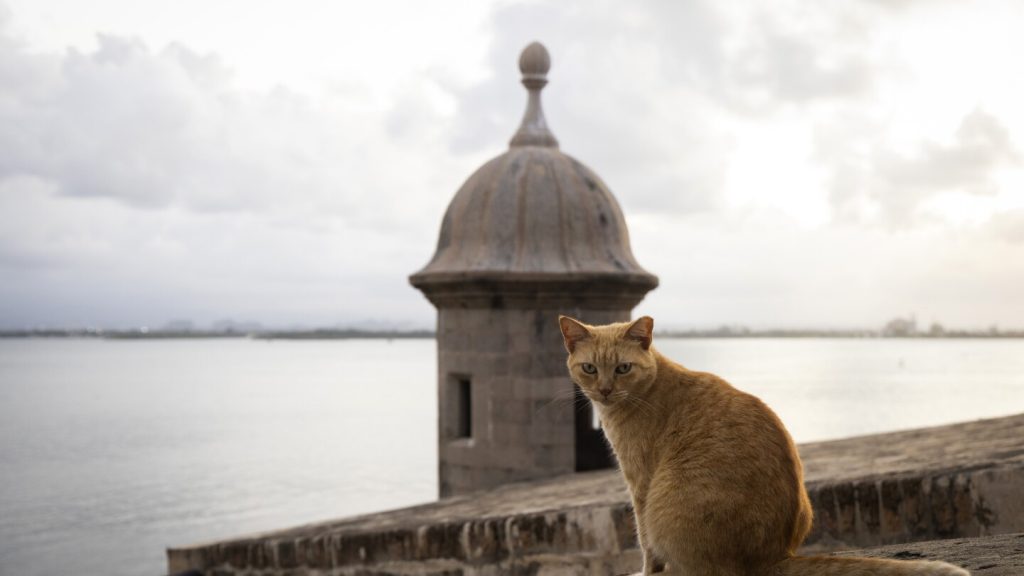A nonprofit organization called Alley Cat Allies has filed a lawsuit against the U.S. National Park Service over a plan to remove approximately 200 stray cats from a historic district in Puerto Rico. The cats have been living in an area surrounding a historic seaside fortress in Old San Juan, with the National Park Service announcing its intention to contract an animal welfare organization for their removal. The organization would then decide the fate of the trapped cats, including options such as adoption, foster homes, shelters, or other alternatives. It is unclear if an organization has been hired yet, and the National Park Service stated that if the contracted organization fails to remove the cats within six months, they would hire a removal agency.
The presence of the cats in the historic district has been a long-standing issue, with both tourists and locals considering them a mix of delight and nuisance. The National Park Service cited concerns over the growing population of the cats, noting issues such as the smell of urine and feces in the area. However, activists have raised objections to the removal plan, expressing worries that six months may not be enough time to safely relocate so many cats and fearing that the cats may end up being euthanized. In response to these concerns, Alley Cat Allies has filed a lawsuit requesting additional environmental statements from the federal agency and alleging violations of acts such as the National Environmental Protection Act. The organization is urging a judge to review the situation and make a decision on the legality of the National Park Service’s actions regarding the stray cats.
The lawsuit filed by Alley Cat Allies highlights the ongoing debate and tension surrounding the management of stray animal populations in historic and tourist areas. The issue raises questions about how to balance the preservation of historical sites with the welfare of animals living in those areas. Local communities have varying opinions on how to address the stray cat population, with some viewing them as a charming aspect of the cultural landscape, while others see them as a problem that needs to be addressed for health and safety reasons. The legal battle between Alley Cat Allies and the National Park Service underscores the complexities involved in managing urban wildlife and finding humane solutions that satisfy all stakeholders.
As the legal proceedings unfold, the fate of the stray cats in Old San Juan remains uncertain. The lawsuit filed by Alley Cat Allies represents a broader effort to advocate for the protection of the cats and ensure that their removal is carried out in a humane and responsible manner. The case also sheds light on the importance of environmental impact assessments and public input in decision-making processes related to urban wildlife management. The outcome of the lawsuit will have implications not only for the stray cats in Puerto Rico but also for similar animal welfare issues in other historic districts and tourist destinations around the world. As the debate continues, it is essential for all parties involved to consider the welfare of the animals alongside the preservation of cultural heritage and the needs of local communities.
For more news and updates on issues related to Latin America and the Caribbean, readers can follow AP’s coverage at https://apnews.com/hub/latin-america. This ongoing legal battle underscores the complexity of managing urban wildlife populations in historically significant areas and the importance of finding ethical and sustainable solutions that consider the well-being of both animals and communities.


